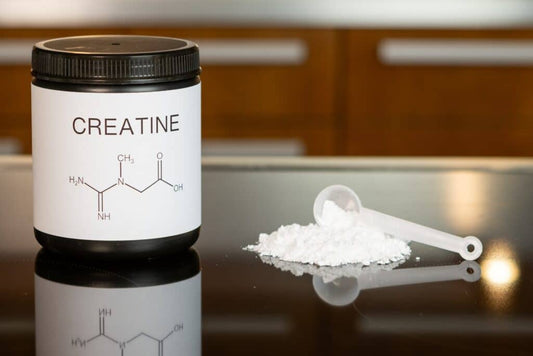How to Tell If Your Immune System Is Strong or Weak?

Ever wondered if your frequent bouts of colds and flu are just bad luck or a sign that your immune system needs a tune-up? While new blood tests can reveal whether your immune system is fighting fit by analyzing the balance of different immune cells, you may not need a lab to gauge your immune health. Keeping track of how often you fall ill each year can provide valuable insights.
Imagine your immune system as an internal army. Different units coordinate to eliminate enemy invaders while avoiding collateral damage to your own tissues, constantly adapting to new challenges. But like any army, your immune system can also fall into disarray, with some units underperforming while others go rogue, leading to major illnesses.
Understanding Your Immune System
The first line of defense comes from innate immune cells such as macrophages, which engulf bacteria and release chemicals that trigger inflammation, making cells less hospitable to pathogens. Once a threat has been identified, the adaptive immune system kicks in with more specialized tools. B-cells form antibodies that bind to and neutralize unwanted newcomers, while T-cells include killer cells that attack infected cells and helper cells that coordinate the activities of other immune cells. Regulatory T-cells call off the battle when the threat has passed, allowing the body to repair the damage.
Our biological warriors are stationed throughout the body, lurking in the mucosal linings of our airways, the digestive tract, and our skin—anywhere invaders might enter. They are also aided by the microbiome, the microorganisms living in and on our bodies. When we are at peak health, these different components are perfectly balanced.
However, things can go awry. You might lack the friendly microbes that protect your digestive system, making you more susceptible to gut infections. A poor diet or stress can make you slower at producing the correct immune cells to fight infection. After recovery, you might lose the cells that "remember" the pathogen, leaving you vulnerable to future exposures. Since the immune system also spots and removes tumors, underactivity can increase your cancer risk.
Overactivity is another issue. An overly aggressive immune system might become oversensitive to foreign bodies, like pollen, leading to allergies. It might also attack its own organs, causing autoimmune diseases. Even muted immune activity for extended periods, such as low-grade inflammation, can be harmful, contributing to everything from cardiovascular disease to depression.
Assessing Your Immune Health
Historically, immune health assessment involved measuring levels of inflammatory molecules and immune cells in the blood. Recently, more sophisticated methods have emerged, focusing on the precise balance of the immune system's different components.
For instance, Sunil Ahuja’s team at the University of Texas Health Science Center developed a way to classify people's "immune grade" based on the relative levels of different T-cells. Higher-than-average numbers of helper T-cells combined with lower levels of killer T-cells indicated the highest immune grade. People with a high immune grade tend to have much better outcomes when facing a pathogen, such as an 88% reduced mortality rate after a COVID-19 infection compared to those with lower grades. Importantly, this grading system proved to be a better predictor of COVID-19 response than age alone.
While your doctor may not yet be able to assess your health with such precision, you can still get a good idea about the state of your immune system. The average person should expect to have one or two mild illnesses a year. If you tend to become sick more often, and if those infections last longer and are more severe than those of the people around you, it may be a sign that your immune system isn't functioning optimally. Your doctor should be your first port of call, but there are also things you can do to give your immunity a boost.
Tips for Boosting Your Immune Health
- Healthy Diet: A balanced diet rich in fruits, vegetables, lean proteins, and whole grains supports immune function.
- Regular Exercise: Physical activity can help flush bacteria out of the lungs and airways, reduce inflammation, and promote the circulation of white blood cells.
- Adequate Sleep: Poor sleep can weaken the immune system. Aim for 7-9 hours of quality sleep each night.
- Stress Management: Chronic stress can suppress immune function. Techniques like meditation, yoga, and deep breathing can help manage stress.
- Hydration: Staying hydrated helps your body function properly, including your immune system.
- Avoid Smoking and Excessive Alcohol: Both can impair immune function and increase susceptibility to infections.
- Vitamin and Mineral Supplements: Given that few diets are ever truly complete, it is smart to use additional, known immune system supplements backed by science, like Olivium.
Get to Know What Makes Up Your Immune System
Innate Immune System
This is the body's first line of defense against pathogens. It responds rapidly to general threats and can distinguish between different classes of pathogens to recruit the most effective form of adaptive immune response to eliminate them.
Adaptive Immune System
This system is activated in response to specific pathogens. It forms an immunological memory of threats we have faced, enhancing our future immune responses.
T-Cells
Part of the adaptive immune system, T-cells attack invading pathogens and infected cells. They can act as “helper cells” by supporting B-cells to produce antibodies.
B-Cells
These are involved in both the innate and adaptive immune systems and are responsible for mediating the production of antibodies against specific pathogens.
Natural Killer Cells
These innate immune system cells provide a rapid response to viruses and other pathogens. They can kill cells in the absence of antibodies.
Neutrophils
These cells travel to sites of infection, where they destroy bacteria or viruses by ingesting them and releasing enzymes that kill them.
Monocytes
These large white blood cells travel to injury or infection sites and turn into macrophages or dendritic cells. Macrophages surround and ingest foreign material, while dendritic cells boost the immune response by presenting antigens on their surface to T-cells.
Antigens
Molecules from foreign material such as a virus or pollen grain that bind to a specific antibody or T-cell.
Antibodies
These Y-shaped proteins recognize specific antigens on foreign objects and bind to them, tagging the unwanted object for attack by the rest of the immune system. Antibodies can also neutralize foreign material directly.
In Conclusion
Understanding your immune system's health is crucial in maintaining overall wellness. While sophisticated blood tests provide a detailed picture, keeping track of your illnesses and making lifestyle changes can significantly impact your immune health. By supporting your internal army with a healthy diet, regular exercise, adequate sleep, and stress management, you can help ensure your immune system is ready to defend you against any invaders.
References
- "The Role of the Immune System in Health and Disease," National Institute of Allergy and Infectious Diseases, NIAID
- "Understanding the Immune System: How it works," National Institute on Aging, NIA
- "Immune System: Diseases, Disorders & Function," Live Science, Live Science



